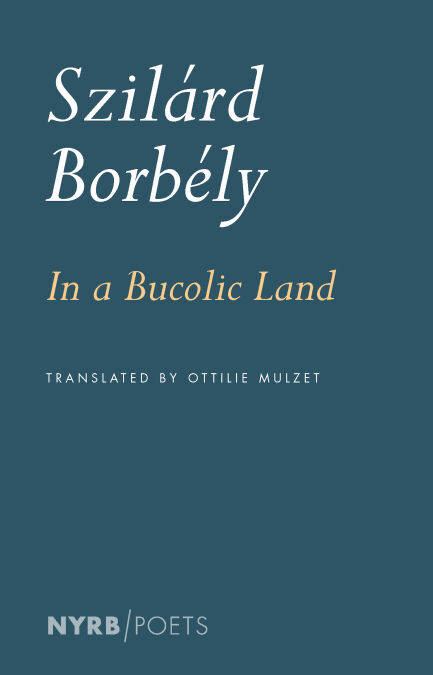
Bedankt voor het vertrouwen het afgelopen jaar! Om jou te bedanken bieden we GRATIS verzending (in België) aan op alles gedurende de hele maand januari.
- Afhalen na 1 uur in een winkel met voorraad
- In januari gratis thuislevering in België
- Ruim aanbod met 7 miljoen producten
Bedankt voor het vertrouwen het afgelopen jaar! Om jou te bedanken bieden we GRATIS verzending (in België) aan op alles gedurende de hele maand januari.
- Afhalen na 1 uur in een winkel met voorraad
- In januari gratis thuislevering in België
- Ruim aanbod met 7 miljoen producten
Zoeken
Omschrijving
A moving, posthumous collection of elegies and eclogues that meditate on nature, landscape, and history, by a great Hungarian poet.
Szilárd Borbély spent his childhood in a tiny impoverished village in northeastern Hungary, where the archaic peasant world of Eastern Europe coexisted with the collectivist ideology of a new Communist state. Close to the Soviet border and far from any metropolitan center, the village was a world apart: life was harsh, monotonous, and often brutal, and the Borbélys, outsiders and “class enemies,” were shunned. In a Bucolic Land, Borbély’s final, posthumously published book of poems, combines autobiography, ethnography, classical mythology, and pastoral idyll in a remarkable central poetic sequence about the starkly precarious and yet strangely numinous liminal zone of his youth. This is framed by elegies for a teacher in which the poet meditates on the nature of language and speech and on the adequacy of words to speak of and for the dead. Ottilie Mulzet’s English translation conveys the full power of a writer of whom László Krasznahorkai has said, “He was a poet—a great poet—who shatters us.”
This English-only edition does not include the poems in their original language.
Szilárd Borbély spent his childhood in a tiny impoverished village in northeastern Hungary, where the archaic peasant world of Eastern Europe coexisted with the collectivist ideology of a new Communist state. Close to the Soviet border and far from any metropolitan center, the village was a world apart: life was harsh, monotonous, and often brutal, and the Borbélys, outsiders and “class enemies,” were shunned. In a Bucolic Land, Borbély’s final, posthumously published book of poems, combines autobiography, ethnography, classical mythology, and pastoral idyll in a remarkable central poetic sequence about the starkly precarious and yet strangely numinous liminal zone of his youth. This is framed by elegies for a teacher in which the poet meditates on the nature of language and speech and on the adequacy of words to speak of and for the dead. Ottilie Mulzet’s English translation conveys the full power of a writer of whom László Krasznahorkai has said, “He was a poet—a great poet—who shatters us.”
This English-only edition does not include the poems in their original language.
Specificaties
Betrokkenen
- Auteur(s):
- Vertaler(s):
- Uitgeverij:
Inhoud
- Aantal bladzijden:
- 144
- Taal:
- Engels
Eigenschappen
- Productcode (EAN):
- 9781681375922
- Verschijningsdatum:
- 10/01/2022
- Uitvoering:
- E-book
- Beveiligd met:
- Adobe DRM
- Formaat:
- ePub

Alleen bij Standaard Boekhandel
+ 15 punten op je klantenkaart van Standaard Boekhandel
Beoordelingen
We publiceren alleen reviews die voldoen aan de voorwaarden voor reviews. Bekijk onze voorwaarden voor reviews.









